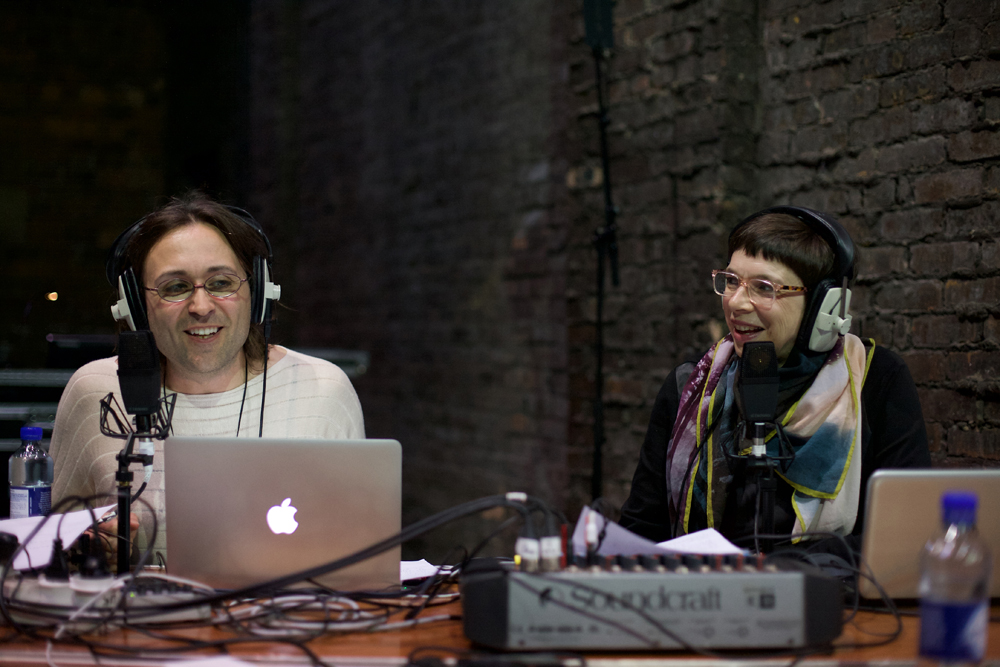
TLRS
Laurence Rassel Terre Thaemlitz
The weeks previous TLRS daily radio shows, after-hours conversations, radio booths and special guests reassembled as a live electroacoustic performance.
Arika have been creating events since 2001. The Archive is space to share the documentation of our work, over 600 events from the past 20 years. Browse the archive by event, artists and collections, explore using theme pairs, or use the index for a comprehensive overview.

The weeks previous TLRS daily radio shows, after-hours conversations, radio booths and special guests reassembled as a live electroacoustic performance.

A sung-through Nubian musical ballet. A darkly humorous take on sexual trauma and what magical and ancestral tools might heal it.

In this workshop we will imagine ourselves as time travellers from a glorious and chaotic neurodivergent-led future.

A series of three short performed situations and statements to be examined or judged from the most interesting young musician in Glasgow (we think).
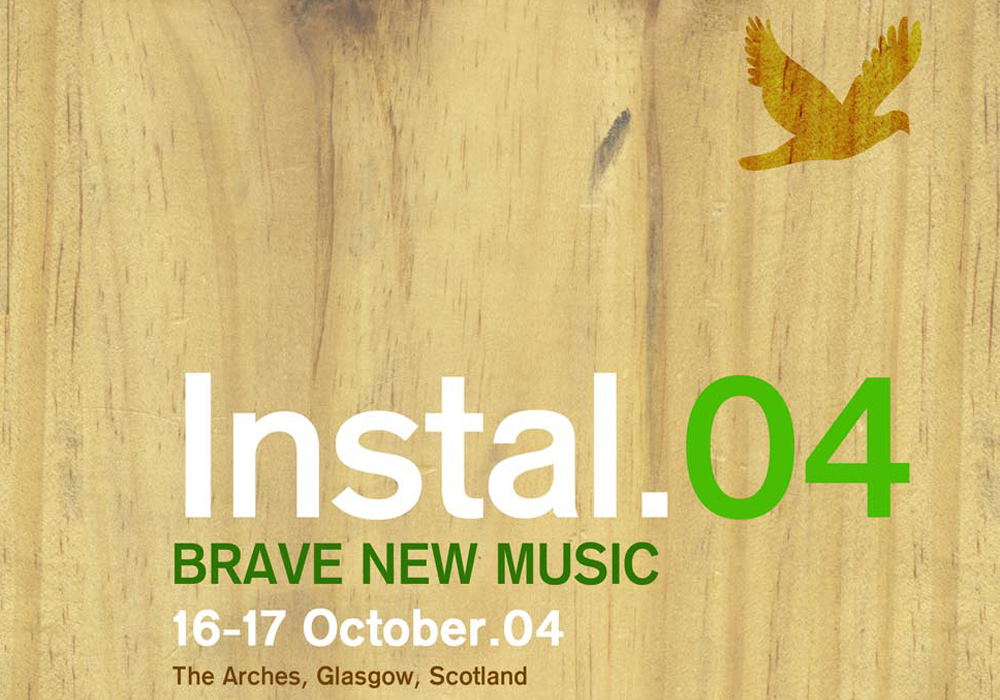
Now a two day festival, INSTAL 04 was borne of a desire to open eyes, challenge audiences and expand musical horizons. This was also the year in which a certain representative from Corwood Industries made his first ever live appearance.
Artist Derek Lodge running a specially designed social space, somewhere for conversation, story-telling and interaction.

During their time in Scotland for Instal 06 Dave Dove, Bhob Rainey and Greg Kelly did some improvisation workshops and performances in and around Glasgow.
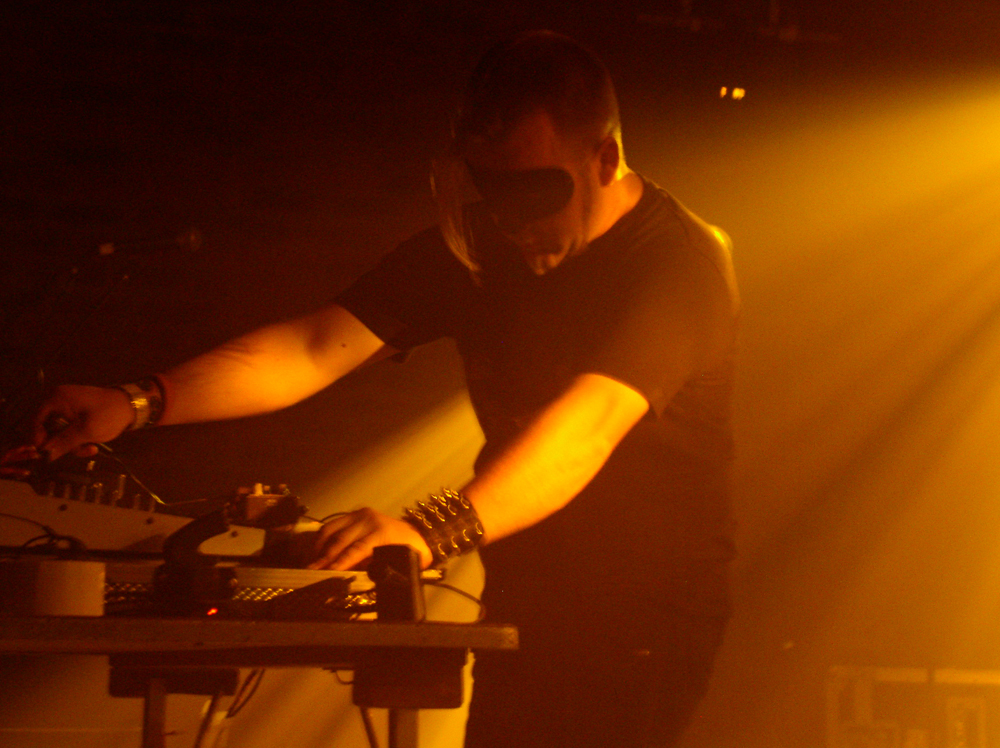
Blissed-out sun-dappled drone ragas of the highest order, with a metal-tinged signature sound of plucked and bowed strings.

A cinema of the mind, a film to take place in the viewers’ imagination(s).
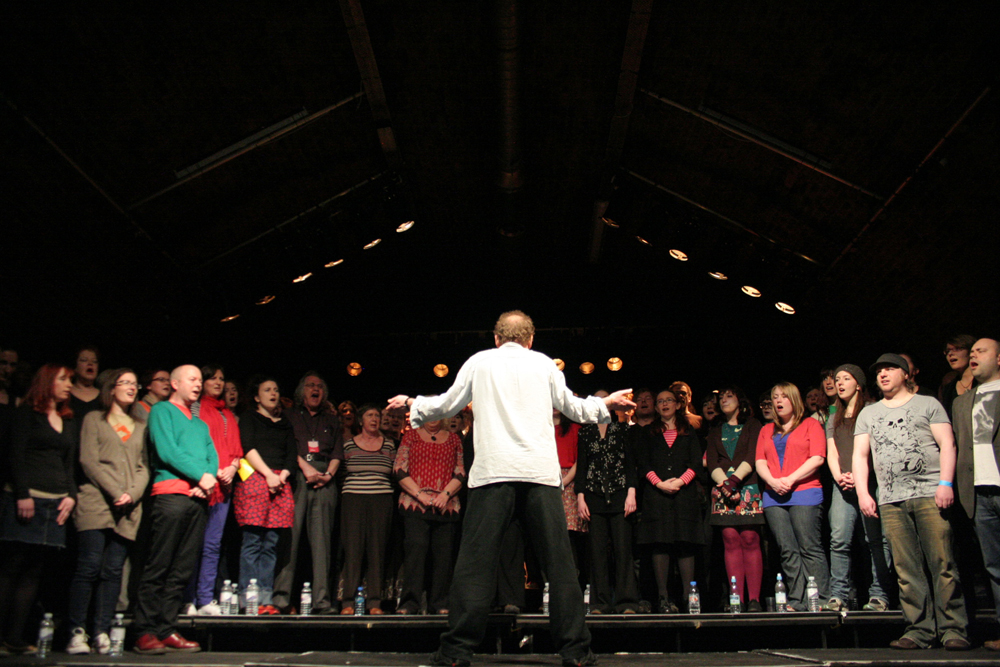
A 100 strong Feral Choir of people who’ve never improvised with their voices before, conducted by composer Phil Minton.

No Wave, damaged garage jams and crazed instant vocal shrieks.
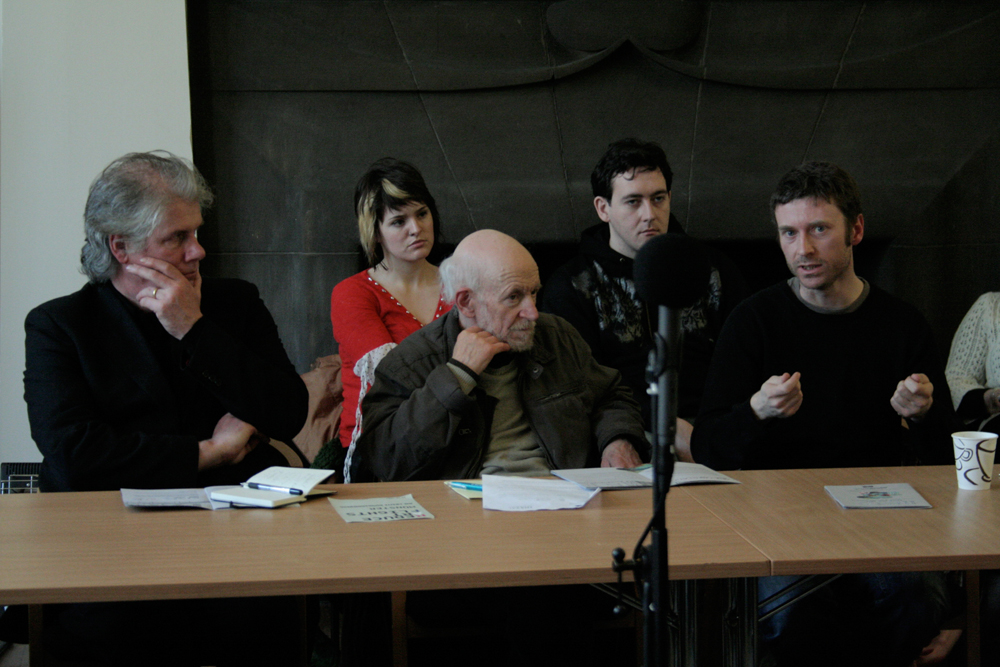
A performed self-cancelling discussion, with artists from the festival, invited speakers and local artists talking at once, over each other, or straining to be heard over the din.